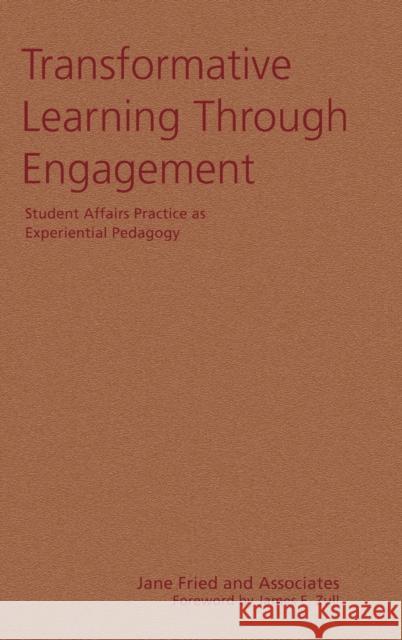Transformative Learning Through Engagement: Student Affairs Practice as Experiential Pedagogy » książka
Transformative Learning Through Engagement: Student Affairs Practice as Experiential Pedagogy
ISBN-13: 9781579227586 / Angielski / Twarda / 2012 / 224 str.
Jane Fried's overarching message is that higher education is based on a profoundly outdated industrial model of the purpose and delivery of learning and needs urgently to be changed. Student affairs professionals and academic faculty have become frustrated with the alienation of so many students from academic learning because they cannot see its connection to their lives.
This book - addressed to everyone involved in helping college students learn - presents what we now know about the learning process, particularly those elements that promote behavioral change and the ability to place information in a broader context of personal meaning and long term impact. Central to its argument is that learning must be experiential and engage students holistically; that it must be grounded in brain science and an understanding of the cultural drivers of knowledge construction; that academic faculty and student affairs professionals must cooperate to help students make connections and see the implications of their learning for their lives; and that the entire learning environment needs to be integrated to reflect the organic nature of the process.
A second purpose of this book is to enable student affairs professionals to articulate their own role in helping students learn. Student affairs, as a profession, has had difficulty describing its work with students as teaching because the dominant paradigm of teaching continues to suggest a classroom, an academic expert and a model of learning that is basically verbal and cognitive. Student affairs professionals who read this book will be able to understand and articulate the processes of experiential, transformative education to their academic colleagues and to help collegially design integrated learning experiences as partners with academic faculty.
The book concludes with a number of brief invited chapters that describe a few emerging models and programs that illustrate Jane Fried's vision of transformative learning experiences that integrate experience, study, and reflection.
This book was written with contributions from:
Craig Alimo
Julie Beth Elkins
Scott Hazan
Elsa M. Nunez
Vernon Percy
Christopher Pudlinski
Sarah Stookey











